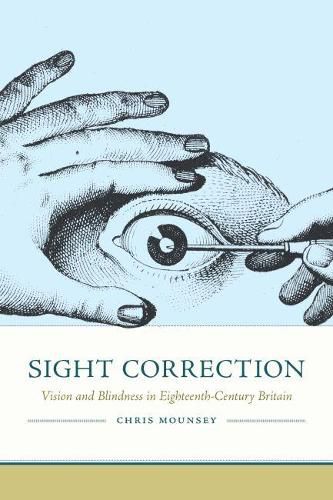Readings Newsletter
Become a Readings Member to make your shopping experience even easier.
Sign in or sign up for free!
You’re not far away from qualifying for FREE standard shipping within Australia
You’ve qualified for FREE standard shipping within Australia
The cart is loading…






This title is printed to order. This book may have been self-published. If so, we cannot guarantee the quality of the content. In the main most books will have gone through the editing process however some may not. We therefore suggest that you be aware of this before ordering this book. If in doubt check either the author or publisher’s details as we are unable to accept any returns unless they are faulty. Please contact us if you have any questions.
The debut publication in a new Series devoted to the body as an object of historical study, Sight Correction provides an expansive analysis of blindness in eighteenth-century Britain, developing a new methodology for conceptualizing sight impairment. Beginning with a reconsideration of the place of sight correction as both idea and reality in eighteenth-century philosophical debates, Chris Mounsey traces the development of eye surgery by pioneers such as William Read, Mary Cater, and John Taylor, who developed a new idea of medical specialism that has shaped contemporary practices. He then turns to accounts by the visually impaired themselves, exploring how Thomas Gills, John Maxwell, and Priscilla Pointon deployed literature strategically as a necessary response to the inadequacies of Poor Laws to support blind people. Situating blindness philosophically, medically, and economically in the eighteenth century, Sight Correction shows how the lives of both the blind and those who sought to treat them redefined blindness in ways that continue to inform our understanding today.
$9.00 standard shipping within Australia
FREE standard shipping within Australia for orders over $100.00
Express & International shipping calculated at checkout
This title is printed to order. This book may have been self-published. If so, we cannot guarantee the quality of the content. In the main most books will have gone through the editing process however some may not. We therefore suggest that you be aware of this before ordering this book. If in doubt check either the author or publisher’s details as we are unable to accept any returns unless they are faulty. Please contact us if you have any questions.
The debut publication in a new Series devoted to the body as an object of historical study, Sight Correction provides an expansive analysis of blindness in eighteenth-century Britain, developing a new methodology for conceptualizing sight impairment. Beginning with a reconsideration of the place of sight correction as both idea and reality in eighteenth-century philosophical debates, Chris Mounsey traces the development of eye surgery by pioneers such as William Read, Mary Cater, and John Taylor, who developed a new idea of medical specialism that has shaped contemporary practices. He then turns to accounts by the visually impaired themselves, exploring how Thomas Gills, John Maxwell, and Priscilla Pointon deployed literature strategically as a necessary response to the inadequacies of Poor Laws to support blind people. Situating blindness philosophically, medically, and economically in the eighteenth century, Sight Correction shows how the lives of both the blind and those who sought to treat them redefined blindness in ways that continue to inform our understanding today.